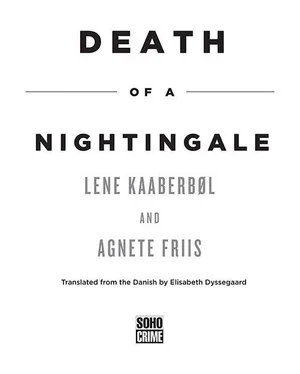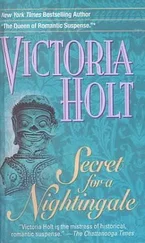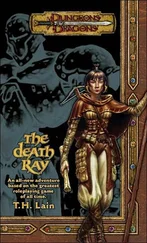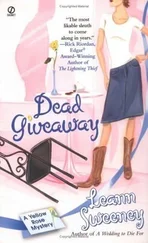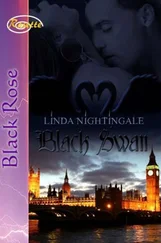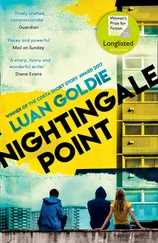Lene Kaaberbol - Death of a Nightingale
Здесь есть возможность читать онлайн «Lene Kaaberbol - Death of a Nightingale» весь текст электронной книги совершенно бесплатно (целиком полную версию без сокращений). В некоторых случаях можно слушать аудио, скачать через торрент в формате fb2 и присутствует краткое содержание. Год выпуска: 2013, ISBN: 2013, Издательство: Soho Crime, Жанр: Старинная литература, на английском языке. Описание произведения, (предисловие) а так же отзывы посетителей доступны на портале библиотеки ЛибКат.
- Название:Death of a Nightingale
- Автор:
- Издательство:Soho Crime
- Жанр:
- Год:2013
- ISBN:1616953047
- Рейтинг книги:5 / 5. Голосов: 1
-
Избранное:Добавить в избранное
- Отзывы:
-
Ваша оценка:
- 100
- 1
- 2
- 3
- 4
- 5
Death of a Nightingale: краткое содержание, описание и аннотация
Предлагаем к чтению аннотацию, описание, краткое содержание или предисловие (зависит от того, что написал сам автор книги «Death of a Nightingale»). Если вы не нашли необходимую информацию о книге — напишите в комментариях, мы постараемся отыскать её.
Death of a Nightingale — читать онлайн бесплатно полную книгу (весь текст) целиком
Ниже представлен текст книги, разбитый по страницам. Система сохранения места последней прочитанной страницы, позволяет с удобством читать онлайн бесплатно книгу «Death of a Nightingale», без необходимости каждый раз заново искать на чём Вы остановились. Поставьте закладку, и сможете в любой момент перейти на страницу, на которой закончили чтение.
Интервал:
Закладка:
“And he did, didn’t he?” said Søren, thinking of a few pieces he had found on the Web. German television in particular had apparently used Pavel as a local expert a few times. “A career as a journalist, a good income, an apartment in Kiev and a young, beautiful wife … to them, he must have looked every inch the successful media star.”
“At least to his mother he did, though she didn’t get to see the final chapters.”
“I’ve looked at everything you found on him,” said Søren. “His stories are generally pretty black and white, aren’t they?”
Pavel Doroshenko never seemed to just write about people. He wrote about villains or heroes. The heroes acted “without thought of personal gain” and “with great personal courage” and were “tireless,” “selfless” and “determined,” whether he was describing a fireman in Chernobyl, a local businessman, the director of an orphanage, a mayor who fought crime in his city or just a retiree who had defended himself against a pickpocket. The villains were similarly described as “calculating” and “greedy”; they were “caught in their own snares” and could often look forward to “many years behind bars”; people foolish enough to defend them were described as “collaborators” or “coconspirators” without it being clear what the conspiracy consisted of. Pavel fairly often cited family background or ethnicity, creating the impression that evil was genetic rather than personal. To Søren, the rhetoric seemed oddly old-fashioned and pretty tiresome.
“You think so?” said Babko. “A lot of people write like that. At least in Ukraine.”
“I haven’t been able to find anything that explains Savchuk’s interest in his widow.”
“No, me neither.”
“Is he another Gongadze?” Søren said, although broken fingers and a heart attack did not quite seem to match the gruesomeness of the decapitation of that particular heroic journalist.
Babko shook his head. “I don’t think so. The people he would attack were mostly nationalists. At the beginning of his career, he was more politically focused—accusing the early nationalists of being a collection of Kosak-romantics, bumpkins and anti-Semites. Later his attacks became more personal, though funnily enough, most of the people he attacked still belonged to the Orange faction. The Blues—that is, the more ethnic Russian- and Moscow-friendly wing—he never wrote much about them, although there would be no shortage of material if he had wanted to have a go at them.”
“Are his personal beliefs a factor here?” asked Søren.
“Possibly. Or it might just have been to please his audience. For a time, he lived and worked in Donetsk, which is a predominantly Russian-speaking area. His motives could also have been more narrowly financial. There was and still is a lot of money flowing out of Moscow to willing mouthpieces in the media world. How else did you think Yanukovytsj managed to get himself reelected a mere six years after the Orange Revolution threw him out?”
Was that the pattern Søren’s tired brain had tried to decipher last night? No. He didn’t have Babko’s local knowledge and couldn’t automatically recognize the party colors of the people Doroshenko had written about.
“I wonder about two things,” he said. “First of all, I think his style changes. It becomes even more purple yet at the same time less precise, wallowing in phrases like ‘could it be that …’ or ‘might not stand up to closer examination.’ In his earlier articles, he is sharper and produces names and facts. Secondly, as his income grows, the apartment in Kiev and so on … he writes less and less, and for more local and smaller media. The year before he died, he published almost exclusively on some Web news site, what was it called …”
“ Velyka Tayemnitsya. The Big Secret, in the English version.”
“Yes. It seems paradoxical.”
“That’s because he is no longer a journalist in the true sense of the word. He was producing kompromat. ”
Søren’s inner dictionary managed to provide a definition a second before he had to ask. Kompromat —by now a fairly old Russian abbreviation for “compromising material.” A tactic in the information war that had roots all the way back to Stalin and which, in all its simplicity, consisted of digging up, fabricating and throwing as much dirt as possible at the person or persons with whom you were at war. American election campaigns were like Sunday school sessions by comparison.
“It’s still used a lot?” he asked.
“Oh, yes. Big Bizniz. Now also as a more private enterprise. And the richest kompromat producers are usually the ones who don’t print what they write.”
“Blackmail?”
“Yep. As a kompromat producer, you always have two potential customers—the person who has paid for the dirt and the person you’re planning to throw it at. The latter usually pays more.”
“And the vague articles that just make suggestions but don’t name names …”
“Those are warning shots. They let the victim know what he can expect if he doesn’t pay up.”
Søren looked at the pile of articles with renewed interest. That meant that the “warning shots” offered up a number of people who had good reason for murdering Pavel Doroshenko and possibly also for pursuing his widow. That is, if Søren and Babko could figure out whom the warnings were directed at.
14:11. exactly a minute had passed since she last checked. Not good.
The sky was so thunderously grey that it might as well have been evening. Nina knew that she checked her watch more frequently on days when the sun didn’t give her a natural sense of the time, but this was more than that. She pulled over to the side of the road, and only then did she realize that she had subconsciously been headed for Fejøgade.
Fuck.
“You don’t live there anymore,” she told herself. She said it out loud because she wanted her subconscious to listen this time. Damn it. If Morten saw her, he would probably think she was stalking them. Like one of those rejected ex-husbands who went home and polished their army reserve rifle and put on their best clothes before blasting off the backs of their skulls. That is, if they didn’t take out their whole family first. Contemptible shitheads.
She carefully placed her hands on the steering wheel again. 14:11. Fuck.
“I just want to take care of them.”
And they said that too, the men with the army reserve rifles. I just wanted to take care of them. When they shot the children, it wasn’t to harm them. Shitheads.
14:12.
But the thought that Natasha had been there. At her home. Well, okay, at Morten’s and the children’s home.
14:12. Fuck. Fuck. Fuck.
I just want to take care of them.
“Are you having a nervous breakdown?” she asked out loud in English.
Why she was speaking English to herself she didn’t know. And then she actually did know. English was the language of crisis. In Dadaab and elsewhere. And flying conditions were lousy.
“Nina, damn it.”
She breathed very consciously now. Long, deep breaths. “Allll the way down to the pit of your stomach,” as an instructor had once said. Panic-reducing big breaths.
The black anxiety inside her paid no attention. Nina didn’t get it. Natasha wasn’t more dangerous than the Finnish psychopath who had kidnapped Ida last year. And in that situation she had been able to think and act; she had done what was necessary for Ida to be rescued. Natasha was no more dangerous. Definitely not. Natasha was just a poor Ukrainian girl who had landed in some bad shit.
A poor Ukrainian mother , Nina reminded herself. And you have taken her child.
Читать дальшеИнтервал:
Закладка:
Похожие книги на «Death of a Nightingale»
Представляем Вашему вниманию похожие книги на «Death of a Nightingale» списком для выбора. Мы отобрали схожую по названию и смыслу литературу в надежде предоставить читателям больше вариантов отыскать новые, интересные, ещё непрочитанные произведения.
Обсуждение, отзывы о книге «Death of a Nightingale» и просто собственные мнения читателей. Оставьте ваши комментарии, напишите, что Вы думаете о произведении, его смысле или главных героях. Укажите что конкретно понравилось, а что нет, и почему Вы так считаете.
